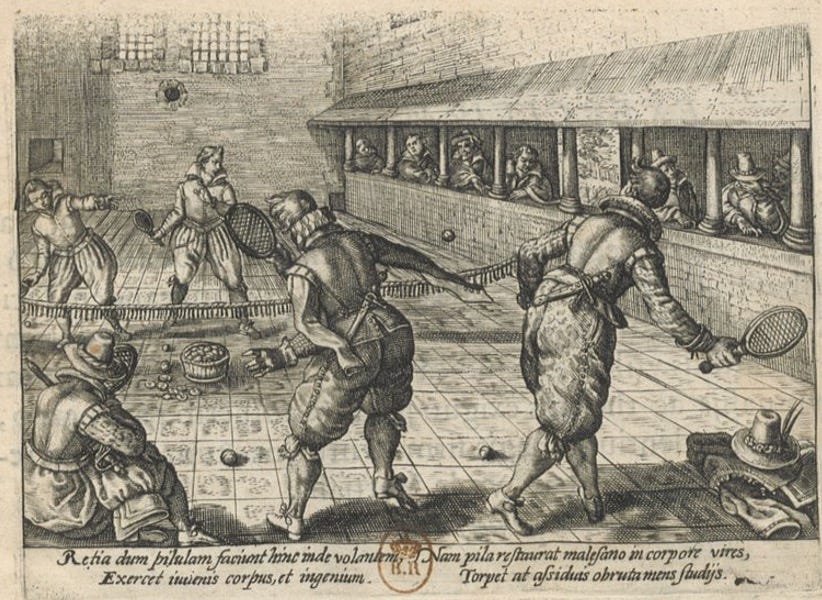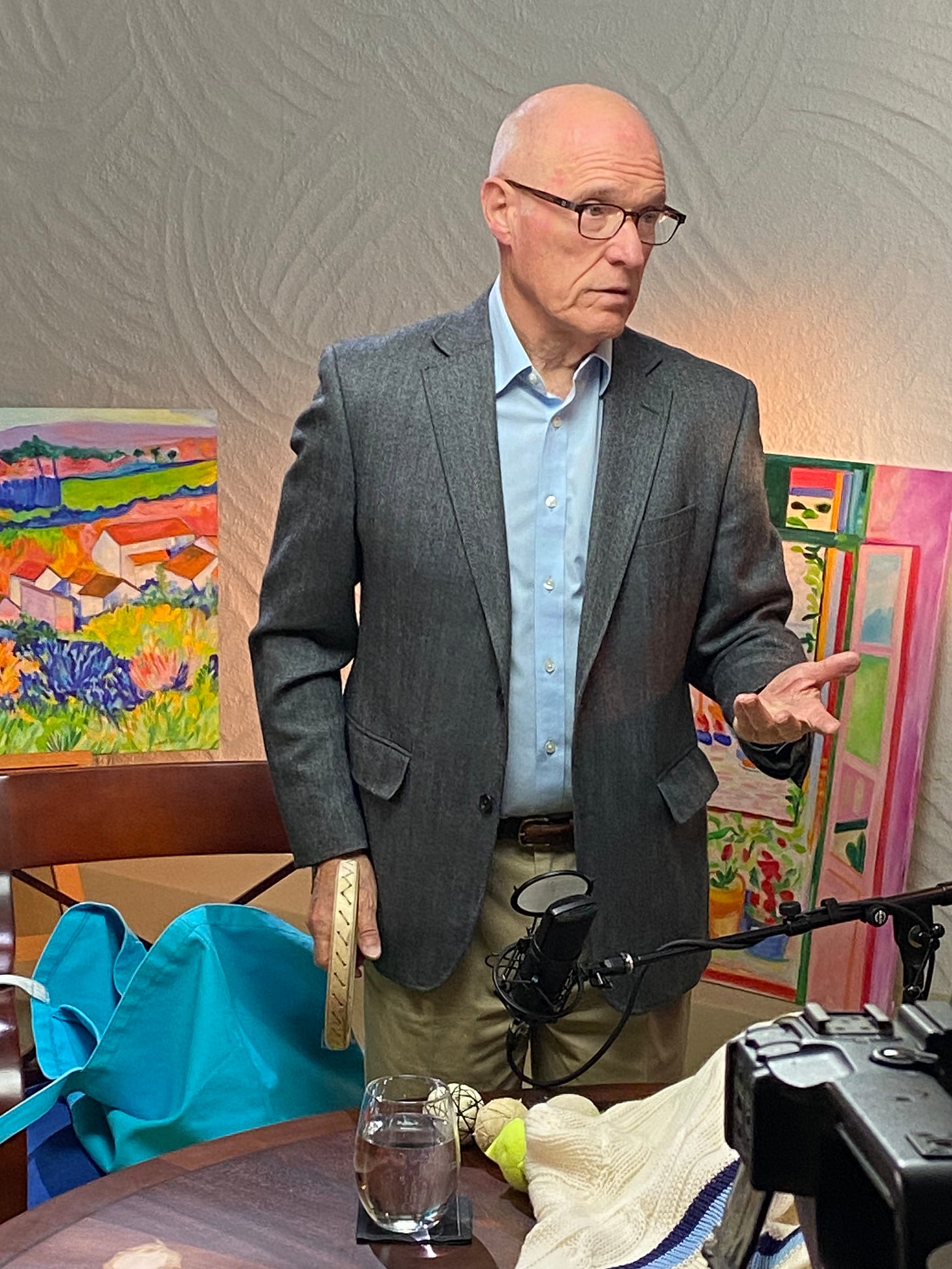Sometimes, no it’s almost all the time, I wish I could spend more time playing the many sports I love to play.
But I don’t.
Instead, like most of us, I get caught up in organizations, politics, work, and all the other stuff that life seems to tee up.
So it was a joy to catch up on this episode with my friend Haven Pell, a man who has successfully managed to do these things while also being a lifelong sports participant, and who has tried more than 100 different ones. Perhaps the most unusual is court tennis, the predecessor to modern tennis, which is still played by about 6,000 people in roughly 50 venues in England, France, Australia and the US.
Haven’s just published a wonderful and quirky book Around the World in Fifty Courts about the game of “real” tennis, also known as court tennis. It’s not yet on Amazon but you can find it on his publisher’s web site.
In this episode, he tells some of the great stories from the book about his personal journey to play all of the 50 courts in the world (actually, it's not exactly 50, but it's close to it). We talk about the history of the game, from another world really, a world away from the one many of us live, and the camaraderie, sportsmanship, and what I think of as the sporting life.
“It was invented as a children's game in the Middle Ages,” explains Haven. “And it was simply played in the environment that they lived in. There were no dimensions. There were no specific rules. And along the way came an Italian writer called Scaino who decided he was going to try to homogenize this game because people were thinking that it was good enough to actually have a purpose-built court.”
“It was quickly adopted by monarchy, clergy, so forth, sort of the upper end of society. Although in fact, most of the courts were related to bars and betting. Though it has a sort of an aristocratic aura, much of it was really about selling drinks and getting people to bet on two different players. So that's how it went until 1873 when lawn tennis was invented.”
It is also a game that thrives and survives on a time-worn and well-observed honor code. It’s a sport that depends not just on prowess, but on character.
“Every now and again, somebody asks, ‘Well, does anybody cheat in this game?’”, says Haven. “And there is actually a chapter in my book about somebody who did. But it deserved only one chapter simply because it doesn't happen very often. The game’s a little bit like golf. If you have cheating in golf, you have no game at all because there's no way to police it. So you really have to learn what kind of a reputation you want to have.”
“When we have a child who's just starting out learning the game, they get the idea right away that they are dependent upon their opponent to call the ball fairly. In this small world, it’s a small universe, your reputation is forever. You're going to grow up and you're going to play with that guy for the rest of your life. So cheating is not something that you can do. And hopefully that transitions into the rest of the person's life and they say, ‘This is how I'm going to behave.’”
Haven and I share the amateur’s ideal of the connection between sports and a life of character epitomized by poem written in 1892 by Henry Newbolt – Vitai Lampada. Written about young men in late Victorian Britain who were told from a young age to adhere to the sporting values of fairness, courage and duty ... “play the game” … and who then found themselves on a battlefield in the far reaches of the British Empire.
Haven recites it during the show and I take a crack at it here:
This episode is chock full with fascinating lore about:
Why a King playing tennis had his servant put the ball in play.
How the origin of the labels “left” and “right” in politics happened in a tennis court at Versailles.
What the terms railroad, the bobble, the demi-piqué, the underarm twist, the giraffe and the African hunting dog mean.
How wine corks are used to make real tennis balls.
Why the real tennis racquet has such a strange shape (the one below is from the 1870’s).
Haven’s confident that if you try playing court tennis you’ll like it.
“The marketing program for court tennis is pretty simple. It's like selling drugs. You give people a few free hits and you get them addicted and you watch the idea get injected into their veins and then they're hooked.”
I hope you’ll find this Backstage foray into the sporting life with Bill Walton worth a listen. I’m finding that the political world is wearing me out and in this world of sports, there's a chance to explore a humane life, an exciting civilized life.
Listen to the Show Here:










